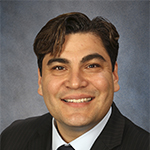Open enrollment is the annual period when employees are able to make changes to their health insurance plans and other employee benefits. Aside from qualifying events, which trigger special enrollment periods, open enrollment is the only time workers can adjust or update these important benefits. During open enrollment, employees can enroll in an employer’s health insurance plan, switch to a different plan, or drop health insurance altogether. Typically, enrollment period applies to the health, dental, vision, life, and disability insurance plans offered by employers.
Open enrollment dates are not required to be a certain length of time or take place during a certain time of the year. However, most employers offer open enrollment for two to four weeks in the fourth quarter. For individuals with health insurance from the government exchanges, the open enrollment period for HealthCare.gov generally runs from November 1 to December 15 every year. However, state-provided healthcare exchanges may have different open enrollment periods.
Employees can also typically register for flexible spending accounts (FSAs) and health reimbursement arrangements (HRAs) during an open enrollment period. Sometimes, these plans have separate plan years than group health insurance plans, which means employees may have to go through one enrollment period for the group health plan and another for FSAs and HRAs. Generally, employees with a health savings account (HSA) can enroll in the HSA plan and alter contributions at any time during the year as long as they are enrolled in an HSA- eligible group health insurance plan.
Many employers will offer employee benefit review sessions as part of the open enrollment season. Consider taking advantage of these review sessions, if available, as they can be an excellent time to review employee benefits on an apples-to-apples basis. Your employer may explain certain government-mandated disclosures and describe the rights you have under various benefit plans. This will also be a time when your employer may exchange changes to benefit plans offered and pass along their respective costs. Your employer may also offer anonymous surveys about its benefits packages as part of open enrollment. Carefully consider participating in such surveys as they may be an ideal opportunity to provide feedback to your employer and potentially improve its benefits options.
When preparing for open enrollment, ask yourself a few key questions: Have your personal needs for health insurance, dental insurance, or vision insurance changed? Has your family or domestic situation changed such as to have an effect on your need for employer-provided life insurance? Do you have other sources of health or life insurance that may require you to take less from your employer during the enrollment process?
Want additional choices for life insurance? Consider First Bank Wealth Management’s life insurance options.
If you miss open enrollment due to vacation, illness, or for other reasons, most insurance carriers allow a 30 day grace period after open enrollment to update selections. If you do miss open enrollment, contact your human resource department as soon as possible to see if you can make updates within the grace period.
If you find yourself outside the grace period, you can still make changes to health insurance during a special enrollment period, typically following a qualifying life event. There are several qualifying life events that may allow you to alter your employer provided health insurance outside of open enrollment. Having a child or getting married is a qualified life event that will trigger special enrollment. Changing a residence can also lead to a special enrollment period, though typically only if you change zip codes or counties. Gaining insurance coverage through a spouse’s insurance plan will often require you to update your insurance coverage with your employer. In any of these situations, you will generally have between 30 and 60 days to update your health insurance plans during the special enrollment period.
To be clear, missing an open enrollment period and waiting for a special enrollment period is often a sub-optimal option for selecting employee benefits. Instead, mark your calendar for your open enrollment, attend any review sessions offered by your employer, and take some time to consider your benefits options.
Open enrollment is a time for self-evaluation and an opportunity to make necessary changes. Do not approach open enrollment on auto pilot or you may spend a year missing out on key benefits.
It’s also a good time to review your retirement strategy. Contact us to discuss how First Bank Wealth Management can fit into your long-term financial plans.
|
Products mentioned are not FDIC insured and are not a deposit or other obligation of or guaranteed by the Bank or its affiliates, and involve risk including the possible loss of principal amount invested and are not insured by a federal government agency.




